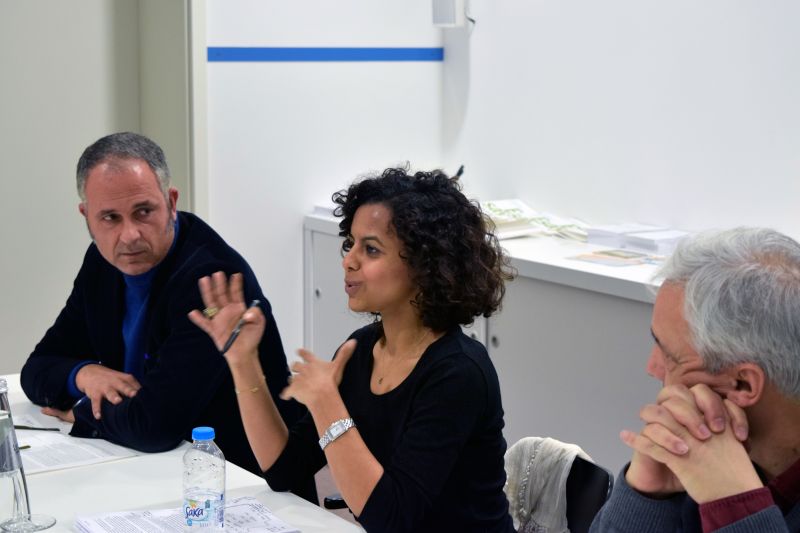The popular uprisings of the year 2011 in several Arab countries have been described as extraordinary and transformative experiences and events by participants and observers. For the latter, perhaps with the exception of Tunisia, hopes and expectations for countries with open doors and more space for freedom and social justice have turned into tragedy, for many of the former the revolution is an ongoing present. Seven years after, authoritarian forms of governance, gated spaces, sectarian and identitarian politics have been restored in new forms and scales. We would like to discuss how to talk and reflect about an ongoing struggle. How do the revolutions reconfigure our understanding of similar struggles of the past? How do we judge success and failure, and where do we go from here? What remains or persists of the Arab revolutions? These questions will be at the heart of the conversation.
Alia Mossallam holds a PhD in Political Science. Her dissertation explores a popular history of Nasserist Egypt through stories told and songs sung by people who contributed to milestone events the 1952 revolution (the building of the Aswan High Dam, and the 1956 and 1967 wars). She has taught at the American University in Cairo (AUC), the Cairo Institute for Liberal Arts and Sciences (CILAS), Freie Universität Berlin (FU) and held the series of workshops ‘Reclaiming Revolutionary Histories’ with students, activists and artists in governorates all over Egypt, an experiment in history-telling. In the spirit of making histories more accessible, she also worked – e.g. in the case of the play Hawwa al-Hureyya (Whims of Freedom) – with a number of theatre practitioners to document revolutionary experiences of the present, explore alternative histories of the past, and recreate them on stage. She continues to look for these stories and songs in an attempt to recover and document a lost history of popular movement in Egypt.
Her publications include an article on youth activism in the volume Democratic Transition in the Middle East, a workers’ history of the Aswan High dam in the Journal of Water History, and an article on history workshops in Egypt in the History Workshop Journal. She also writes for Mada Masr. In 2017 and 2018, Mossallam is a EUME-FU Fellow of the Alexander von Humboldt Foundation, where she is working on a book on a popular history of the building of the Aswan High Dam, and starting a new project on the experience of the Egyptian Labour corps in World War I – mainly through songs and sound-scape of the experiences.
Yassin Al-Haj Saleh is a Syrian writer who has been living in exile for four years. He has been a political prisoner for 16 years in the 1980s and 1990s. He is the author of six books on Syria, prison, contemporary Islam, on culture as politics and the role of intellectuals. His last book, a collection of essays written during the period from 2011 and 2015, has been translated and published in English under the title The Impossible Revolution: Making Sense of the Syrian Tragedy, and published by Hurst in London in July 2017. Presently he is a Fellow at the Wissenschaftskolleg zu Berlin.
How to Understand Popular Uprisings and what Remains of the Arab Revolutions?
Panel Discussion with Alia Mossallam (AUC / EUME Fellow of the Alexander von Humboldt Stiftung 2017-18) and Yassin Al-Haj Saleh (Raqqa / Fellow of the Wissenschaftskolleg zu Berlin 2017/18), Chair: Georges Khalil (Forum Transregionale Studien / EUME)
Forum Transregionale Studien, Wallotstr. 14, 14193 Berlin


